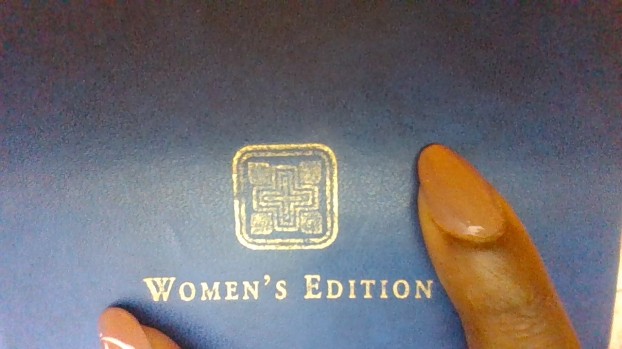So…I have been reflecting on why I have been a little unstirred by conversations regarding the church’s singles community of late.
I recently attended a good panel discussion focussed on several church related topics, including that of gender roles, and whether singles of either gender are/should be pastored differently. Many points were made, some of which I’ve heard before, but my ears perked up when one sister in the congregation shared that over-promoting marriage in the church is futile when too many marriages, in her opinion, are doing badly, some with cases of pornography, or spiritual immaturity.

This is it. I sometimes tire of conversations that centre on an ‘us ‘vs’ them’ trope: Why aren’t single Christian men marrying sooner? Why do single women outnumber single men, etc? I want to be empowered by my relationship with Christ, not victimised by my relationships (or lack thereof) with single men in the church! Also, the older I get the more sensitive I become about attending events that remind me I am unmarried – not single – but unmarried. And if it’s an event for the purposes of meeting potential suitors, then I don’t want to be reminded that I, along with other sisters, outnumber the men, have not been chosen, or, if I am ‘chosen’, it is at the expense of another beautiful sister.
I genuinely believe that to be single and Christian is a glorious position – and it comes with challenges as diverse as there are different types of marriage. I mean, how appropriate is it to have a pastor at a singles mixer pitch mainly to young, never-marrieds, when in the group are middle-aged divorcees, or widows, or single parents? True story – this happened at a singles event I attended recently!

What I want to know is: what do I have in common with my brother or sister who happens to be married?
Perhaps it is the pain of being pursued by a perfectly well-rounded, handsome NON-CHRISTIAN man? Add to that, when interests in Christian brothers have gone unrequited. For a married person, it may be the pain of being pursued by someone/anyone other than their spouse. Or being attracted to another when things are not going so well in their marriage. I made the commitment to take up my cross and follow Jesus, which means not being yoked with an unbeliever [2 Corinthians 6:14], just as a married believer made the commitment to prefer their partner above any other [1 Corinthians 7:10-11]. And I’ve appreciated spouses who have admitted they have been attracted to others and/or have perhaps entered into an emotional or physical affair that had repercussions in their marriage because… we’re in this together. Now there’s common ground: the call to take up one’s cross daily and follow Jesus [Luke 9:23].
Perhaps we share the challenge of being chaste whilst not retreating in a convent, but being exposed to the licentiousness in the world – having to face the kissing/canoodling couples on public transport on a daily basis for example… Must spouses not also refrain from lusting after anyone but their partner, or else commit adultery? [Matthew 5:28]
Or how about the insecurities that a changing body may generate; preparing to grieve the possibility of, or actually grieving not ever having children… Do married couples not deal with infertility and/or miscarriages or perhaps missing the opportunity to bear children due to late marriage or a lack of finances?
Finally, what about sexual addictions/pornography? Do all married couples experience healthy sex lives with no dysfunction, no adultery?
I don’t think we singles who desire marriage should ever stop collectively processing the pain of hope deferred [Proverbs 13:12] – the hope to be married one day – but I do wonder whether we would be better off finding the common ground between ourselves and our married brethren so that our focus/aspirations may be centred ultimately on Jesus and on cultivating rich Christian community that promotes most our unity in Christ [Galatians 3:27-29]. ♥















